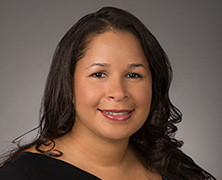Dismantling the Discrimination Wall
I am passionate about my work as a civil rights plaintiffs’ attorney because it enables me to assist and empower people who have experienced mistreatment by their employers on the basis of race, gender, or other protected statuses.
The majority of clients my colleagues and I have been privileged to represent share a common story: After working assiduously to obtain the education, experience, and credentials necessary for their chosen career path, they hit a proverbial wall of disparate treatment and bias. The “wall” can include being denied the same resources, compensation, and career advancement opportunities that the employer provides to their (often, white and/or male) counterparts, or being subjected to sexual harassment or sexual assault.
It is a jarring and disorienting experience to, for example, face repeated and unwarranted scrutiny from supervisors despite one’s exemplary job performance and output, or to be disciplined for exhibiting the same type of proactive and assertive behavior that is encouraged among one’s white male counterparts. From what I have observed and experienced, it is virtually impossible to overcome this type of discrimination merely through assimilating behaviors and hard work, without sacrificing one’s professional stature, reputation, and dignity.
Because so many of the clients my colleagues and I represent have become accustomed to “toughing it out” to grow and progress in their careers, it is not uncommon for them to endure months, or years, of illegal disparate treatment before seeking legal counsel. The injuries that clients face in such circumstances are exacerbated when their efforts to address discriminatory conduct by reporting it to management and Human Resources results in retaliation and further unwarranted criticism.
As a black and Latina woman among the American Bar Association’s reported five percent African American and five percent Hispanic lawyers in the United States—where these statistics have remained static over the past decade—my practice and business acumen are informed in part by my own past experiences with disparate treatment and bias in educational and corporate settings. It has been the most rewarding work of my career to advocate on behalf and in support of clients, as they face the emotional (and sometimes, physical) toll of discrimination and unchecked bias in the workplace. Their courage, determination, and resilience inspire me to approach impediments with optimism and creativity, when working to achieve outcomes that enable them to get their lives and careers back on track.







